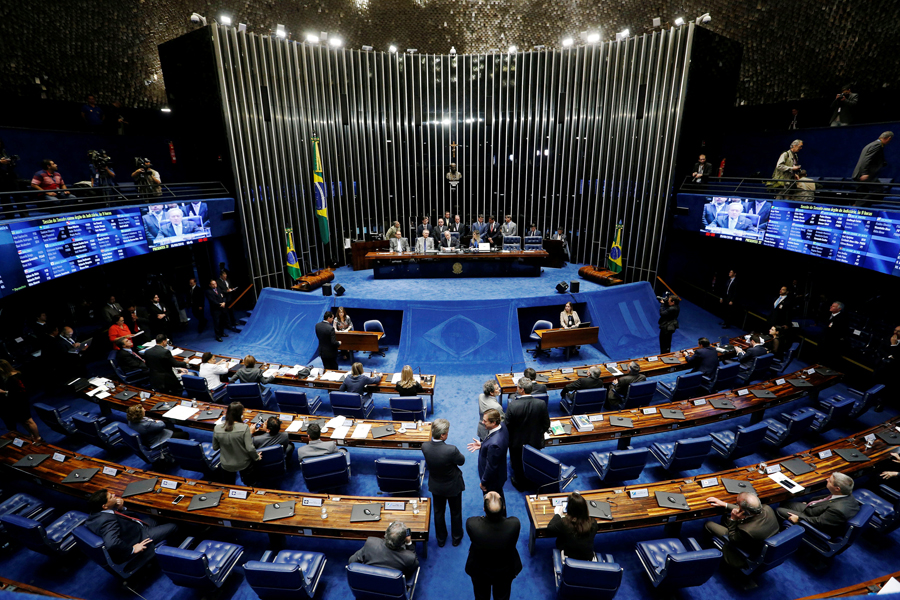Brazil's Senate begins Rousseff's impeachment trial
Updated: 2016-08-26 09:23
(Agencies)
 |
|
General view of Brazil's Senate during a final session of debate and voting on suspended President Dilma Rousseff's impeachment trial in Brasilia, Brazil Aug 25, 2016. [Photo/Agencies] |
BRASILIA - Brazil's Senate began the trial of suspended President Dilma Rousseff on Thursday after a lengthy impeachment process that has paralyzed the politics of Latin America's largest nation and is expected to culminate in her removal from office next week.
Thursday's session, presided over by Supreme Court Chief Justice Ricardo Lewandowski, heard witnesses for and against Rousseff, Brazil's first female president, who is charged with breaking budget laws.
The leftist leader, whose popularity has been hammered by a deep recession and immense corruption scandal since she won reelection in 2014, will appear before the 81 senators on Monday to defend herself. Her opponents are confident they have more than the 54 votes needed to convict her.
Authorities prepared barriers to contain demonstrations outside Brazil's modernistic Congress building, but virtually no Rousseff supporters turned out, underscoring the isolation of the impeached president.
If the final vote, which is expected late Tuesday or in the early hours of Wednesday, goes against Rousseff it would confirm her vice president, Michel Temer, as Brazil's new leader for the rest of her four-year term through 2018, ending 13 years of left-wing Workers Party rule.
Rousseff has denied any wrongdoing and described efforts to oust her as a "coup." She has refused to resign and said the accounting practices she is being put on trial for were also commonly used by previous governments.
With unemployment above 11 percent, and dozens of politicians in her coalition implicated in a kickback scandal at state-led oil company Petrobras, the trial has become a test of Rousseff's support.
Polls show ordinary Brazilians are unconcerned by the alleged accounting irregularities but want Rousseff ousted in the hope the next government can better manage the economy.